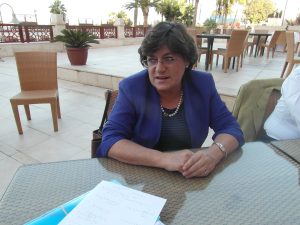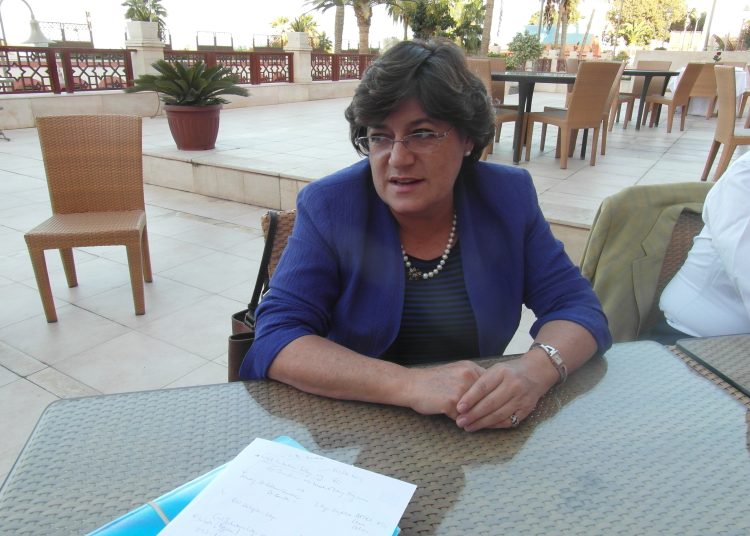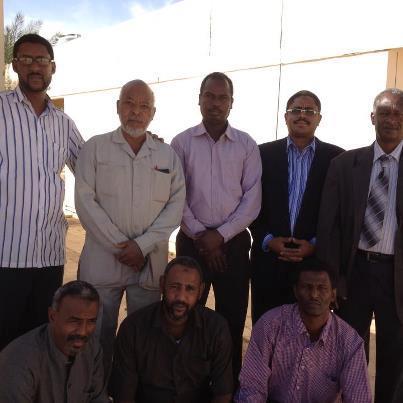By Sami Zaptia.

Tripoli, 6 October:
LIBYA HERALD EXCLUSIVE
Ana Gomes member of the European Parliament and Rapporteur on Libya concluded a successful visit . . .[restrict]to Libya yesterday which included a visit to Benghazi. Ms Gomes has been a regular visitor to Libya and was keen to deliver the message that Europe was very much in support of Libya’s state-building efforts – so long as human rights were respected.
Ana Gomes underlined that justice must be delivered to ‘’all victims of Gaddafi’s murderous dictatorship’’.
“Libyan authorities should set in motion a national reconciliation process, encompassing transitional justice mechanisms to ensure that justice is guaranteed for all. It is very important that Libyans see that justice is being done and it is very important that it is credible for the international community”, Ms Gomes said.
Gomes added the EU could play a ‘’significant role in assisting Libyan interim authorities in building a democratic society and democratic institutions, if they so request, provided that human rights are respected’’.
‘’The EU is committed to supporting Libyan transition. The only way to learn democracy is by doing democracy. But sharing experiences can help Libya’’ Gomes added.
“The EU stands ready to assist the Libyan authorities in building a democratic state which respects human rights and the rule of law. But EU leaders, if they learn the lessons from the Arab Spring, will certainly refrain from supporting any government that sets to violate women rights or international obligations, including the rights of prisoners of war.”, she stressed
However Ms Gomes was also very keen to remind the Libyan authorities that real tangible help was also on offer. ‘’Funds are still available to help Libya’’ to help with civil society, media and information, security, help with the constitution and training and capacity-building, Gomes pointed out. ‘’We await the activation of the new government to act as full partners in receiving this help, if they so wish’’, reiterated Ms Gomes.
‘’We are aware that Libya’s security is our security. And therefore any training we can offer for Libya’s new army, police, border security forces and for securing the arms depots – is very important for Libya and Europe. This help includes help to the youth in the thuwar (militias) and help with jobs and the diversification of the Libyan economy. Our help cannot just be purely about security matters.’’
Ms Gomes was keen to project a different stance of the European Parliament than that of a strict bi-lateral stance sometimes expressed by individual states on various issues.
‘’It is important that Libya understands that there is sensitivity in Europe regarding the protection of migrant and refugee rights in Libya. The legal status of migrants is very important for us. Libya needs migrant workers and therefore in the long term their legal status is very important. It is important how it is seen by civil societies in Europe which may be different from how the individual EU governments see it’’.
‘’it is therefore important to see how the new Libyan constitution will consider the human rights of all the people living in Libya – not just the Libyans.’’
Ms Gomes also felt that Libya had to deal with the issue of national reconciliation. ‘’Thia has to be addressed. It is very important and requires a major effort. I believe Libya needs help in this and we are happy to offer help. There is money to help on this issue and we look forward to the new government acting as a partner in this.’’
With regards to other experiments in reconciliation, Ms Gomes felt that a truth and reconciliation type of process would be greatly beneficial to the Libyan scenario. ‘’It helps so much in the healing process and removes many people from having to face the courts and therefore preventing the new Libyan justice system from being overwhelmed by the volume of cases’’.
‘’Some mercenaries, for example, could be fast tracked by reconciling (admitting to or apologizing for) themselves with the Libyan community which may in itself have a healing effect on the Libyan community’’, Ms Gomes added. [/restrict]









